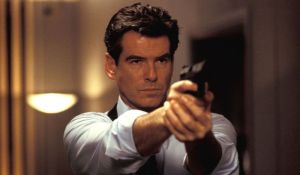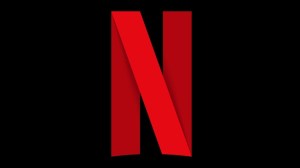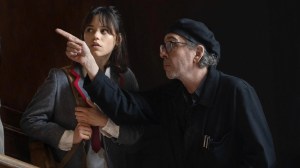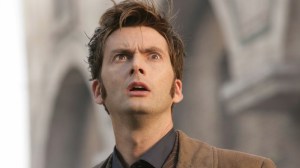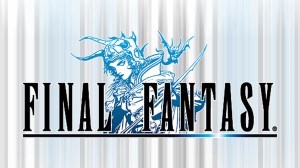The second season of Undone premiered on Amazon Prime over the past weekend, giving fans the opportunity to check out the one-of-a-kind adult animated series. The show, which utilizes rotoscoping techniques to create its animation, explores the elastic nature of reality through its central character, Alma (Rosa Salazar), who discovers she has a new relationship with time after getting into a nearly-fatal car accident. In Season 2, Alma utilizes her abilities — as well as the abilities of her sister, Becca (Angelique Cabral) — to further unravel the secrets behind their family.
Videos by ComicBook.com
One of the driving forces behind Undone is Kate Purdy, who serves as co-creator, writer, and executive producer on both seasons. Purdy, who previously worked on projects such as Bojack Horseman and Enlisted, brings a one-of-a-kind creativity that shines throughout the series. In honor of Undone‘s Season 2 debut, ComicBook.com got a chance to chat with Purdy about her genre-bending work on the project, what she hopes fans take away from the new episodes, and so much more. Spoilers for Season 2 of Undone lurk below!
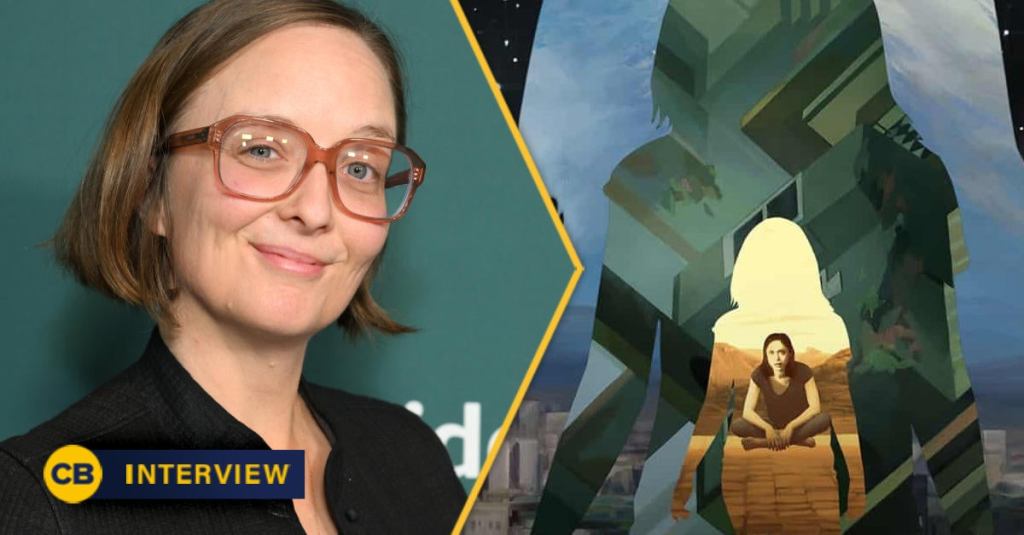
Fan Response
ComicBook.com: What was it like to see the fan response to season one, and the reactions that it feels like people had?
Kate Purdy: I mean, it felt great. It felt great to hear all these really smart, thoughtful reactions. A big part of making this show is the conversation with the audience, because it’s an open-ended show for interpretation, so we mean for the audience to come to it and be an active player in it. One of my greatest experiences was I have a set of friends who are married, a couple. They watched the entire series together. And at the very end, he turned to her and said, “She’s a shaman!” And she turned to him and said, “She’s crazy!” Two people who love each other very much and are raising a child together could watch the same show, and come away at the very end, with a different interpretation, that’s exactly what we’re looking for. Right?
That we’re opening up the dialogue, and the conversation of how we all perceive reality, and how each of us is actually bringing our own truth to every situation, and that can be always shifting and changing based on experience, or how open minded we’re being, or how close minded we’re being. And that maybe these conversations, hopefully, will open more minds to seeing that it’s actually truth is sort of outside all of us. It’s a lively interaction of all of our truths and that can be shifting and changing and flowing, and we can kind of build that consciousness together towards greater goods, possibly.
Pandemic
How much did the pandemic influence writing Season 2? Watching it, a lot of the familial aspects and the trauma aspects hit in a completely different way, than they did when season one came out. I was curious, from a conceptual standpoint, how that worked with you.
It was actually really serendipitous, because we wrote the [second season] pre-pandemic, and then when were filming in the pandemic. I know that, for the actors, they brought a lot of that feeling of isolation, and only really being able to work with each other, to their performance. I think you really feel it, that we are in this together to figure out ourselves. I think, also, one of the central themes of the second season is sort of looking outward, to sort of understand ourselves better, and then ultimately realizing that it’s an inward journey that also needs to happen. That the outward journey is reflection of an inward journey that needs to happen, is very pandemic mindset, because we’re sort of trapped with ourselves, and really having some time and space to think about reality in our lives, and the meaning of it, and what we’re intended to do here, and how we go about doing that.
That is also one of the central drives for Alma as a character in this season — “I’ve got to get back to my purpose.” But then, of course, the complication of — Is she doing this for herself? Because she wants to go on a fun adventure, and she’s kind of pushing her sister, and bullying her into doing it with her. Or is it really for the betterment of the family? Is that sort of a seesaw that’s always happening too? So yes, interestingly enough, the themes really resonate with the pandemic experience.
Family
I love how Season 2 explores the larger family dynamic — we get new members of the family, we go back in several different generations. What was the narrative drive behind expanding outward, and encompassing the larger family, in a way that’s so different from Season 1?
In Season 2, Alma and Becca are on this journey to understand themselves better. And I think that comes from “Well, Alma gets her wish, right?” And then, she’s still dissatisfied. There’s just something that’s still wrong. That’s eating away at her. What is that? And instead of saying, “Maybe it’s me”, she says, “Maybe it’s everyone around me,” which I think is a really a common experience! “This needs to change! You need to change! That needs to be better!”
So it’s seeing her roping her sister into that journey of, “Subconsciously, I’m trying to understand myself better, and why I am the way I am, but I’m looking to the past to figure that out.” Which I think we do, because that intergenerational trauma, those generations and generations ago of people who we don’t even know about anymore, their lives are still influencing us and unseen in invisible ways. So to explore that through these characters, trying to unpack the past to get to the central mystery of “What’s happening to mom? But also what’s happening to us?”
Jumping the Shark
In addition to that, I love how the stakes are kind of escalated in Season 2, and the relationship with time travel and with other people’s powers is escalated. Did you guys have any moments in writing the season where you worried about jumping the shark? Or was it a “sky is the limit” sort of situation?
No, we did. We wanted to make sure we kept it grounded. We wanted to make sure that we always brought it back to family and their relationship. I think that, especially the mom and the two sisters become such a central triangle, and an important one, in terms of those interpersonal relationships. We did have conversations in the room of, “Is it too much for other people to have powers too?”
I think for me, it comes down to — I really believe that everyone is powerful. Everyone has a direct connection to a universal power that’s larger than all of us. We all have abilities, whether we want to believe it or not. Everyone is kind of brilliant in their ability to love and overcome and connect and manifest. I kind of believe all that stuff. I think it also plays well with the series, that we’re also playing with genealogy and things that are inherited traits. So the fact that [it] could happen in this family, and that there could be more people in the world with these abilities, all tracks for me on two levels, which we need to always do in the show, to make sure that it can track multiple ways.
So yes, we were trying to be careful how to jump the shark, because I think there is a temptation, the way we can be so visual with the show, to make sure we have enough of that visual eye candy. That’s really fun, and you feel like you’re in that fluid dream scape of liquid reality, but grounded enough in actual real-life stuff and interpersonal relationships. But of course, there’s always a temptation to do more of the fantastical, so [we were] making sure we had that balance and we’re really entering from a grounded place.
Alma’s Decision
I wanted to ask about Alma’s decision in the finale. I was curious, from a writing perspective, what you think that decision represents?
I think she realizes she has to take care of herself. The thing that’s been gnawing at her all season, that she can’t rest because of, is the harder work that she has to do to take care of the self that she abandoned. Just like Geraldine abandoned herself, there’s a mirroring there. And [to how] Camilla abandoned herself, and abandoned her younger version of herself, who abandoned the child. And that her father abandoned her in the season one timeline.
She realized, and kind of regretted that life, and led this other life that was locked up and locked down, and refused to look back. She can’t refuse to look back. Like her grandmother did, her mother did, her father did. She has to go look at herself. So actually, this mirroring outward of trying to fix other people is her showing what she needs to do. Right? All these other stories, what she’s finding in them, the mystery that she’s chasing is actually the mystery of not self abandonment. Self love, and diving into the hardness of those relationships and of her relationship to self to do that self-healing. The ultimate challenge.
Favorite
What would you say was your favorite part of creating this season, and kind of escalating the story even further?
Seeing Rosa and Angelique play off each other and enjoy each other, both on screen and off screen together, is so wonderful. And also Constance having to deal with those two, and doing it with so much comedy and so much fun has really been a joy. And to see them talk about the show now on panels, and how much love they have for each other and for the family and their characters is really, really joyful for me.
Emotions
As you said at the beginning of the interview, Undone is very open to interpretation, people can walk away with completely different things, but what do you hope is kind of the overwhelming feeling as people watch the new season?
I hope people can find something in it that resonates with them, whether that’s an emotionality, or an exploration of family. Or just really fun, interesting animation that’s all handmade by brilliant artists. I hope that they can find something in it that resonates with them and gives them something to feel about, and to feel strongly in a positive way about.
***
The first two seasons of Undone are available to stream exclusive on Prime Video.


